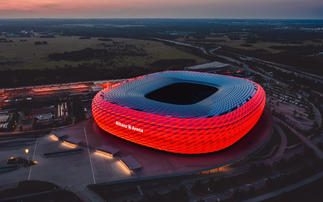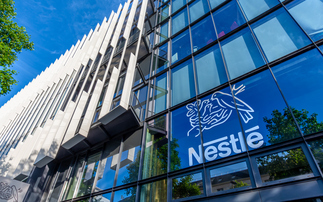
Industry Voice: Signify's Jonathan Weinert takes a look at the key role for lighting in combatting climate change
US President Joe Biden's climate action announcements on Earth Day in April earlier this year represented the single largest commitment to emissions reductions ever. According to Niklas Höhne, of the NewClimate Institute, we may be reaching a global tipping point. "With other big emitters like Japan, the EU and the UK also stepping up, we are now starting to see the kind of near-term climate action the world needs to win the race to net zero by 2050, and keep warming to 1.5°C," Höhne said. However, he warns that "the gap is still huge," so there is still a lot of work to be done.
We are now starting to see the kind of near-term climate action the world needs to win the race to net zero by 2050"
Smart connected systems are uniquely positioned to help businesses and cities participate in climate action initiatives around the world. And they're essential to achieving those goals. One simple and often overlooked way to get into the sustainability game is connected LED lighting. Are you aware, for example, that lighting consumes around half of a city's total electricity use? By reducing the energy needed for lighting, connected LED lighting systems can save up to 80 per cent over conventional lighting systems. In other words, energy-efficient lighting retrofits alone can reduce a city's total energy budget by around 40 per cent.
Now that incentive funds and subsidies for green renovations are being made available in the USA, the EU, and elsewhere, the world can't really afford not to retrofit lighting in the built environment wherever possible. We have the technology. The only question is whether or not we have the will.
Energy efficient technology that boosts a digital era
But let's look beyond lighting for a moment - or to be more precise, let's look at how connected lighting contributes to climate action beyond illumination. Because lighting is already everywhere that people are, connected lighting systems can serve as the perfect platform for distributing Internet of Things (IoT) capabilities that promise to make businesses and cities smarter and more sustainable.
Such IoT capabilities include smart solutions that can make renovated buildings not only greener but also healthier and more user-friendly. They could also include smart city technologies - such as built-in charging points - to support the widespread use of electric vehicles (EVs) alongside the next generation of carbon-zero public transport.
The global response to climate change will undoubtedly unfold in increments, and there will almost certainly be setbacks and unforeseeable challenges, as there are with any major push for innovation. But the global indications are that things are about to change.
For more details, read this article on green deals around the world, about Interact, Signify's connected lighting software and systems for the IoT.
This article is sponsored by Signify.








